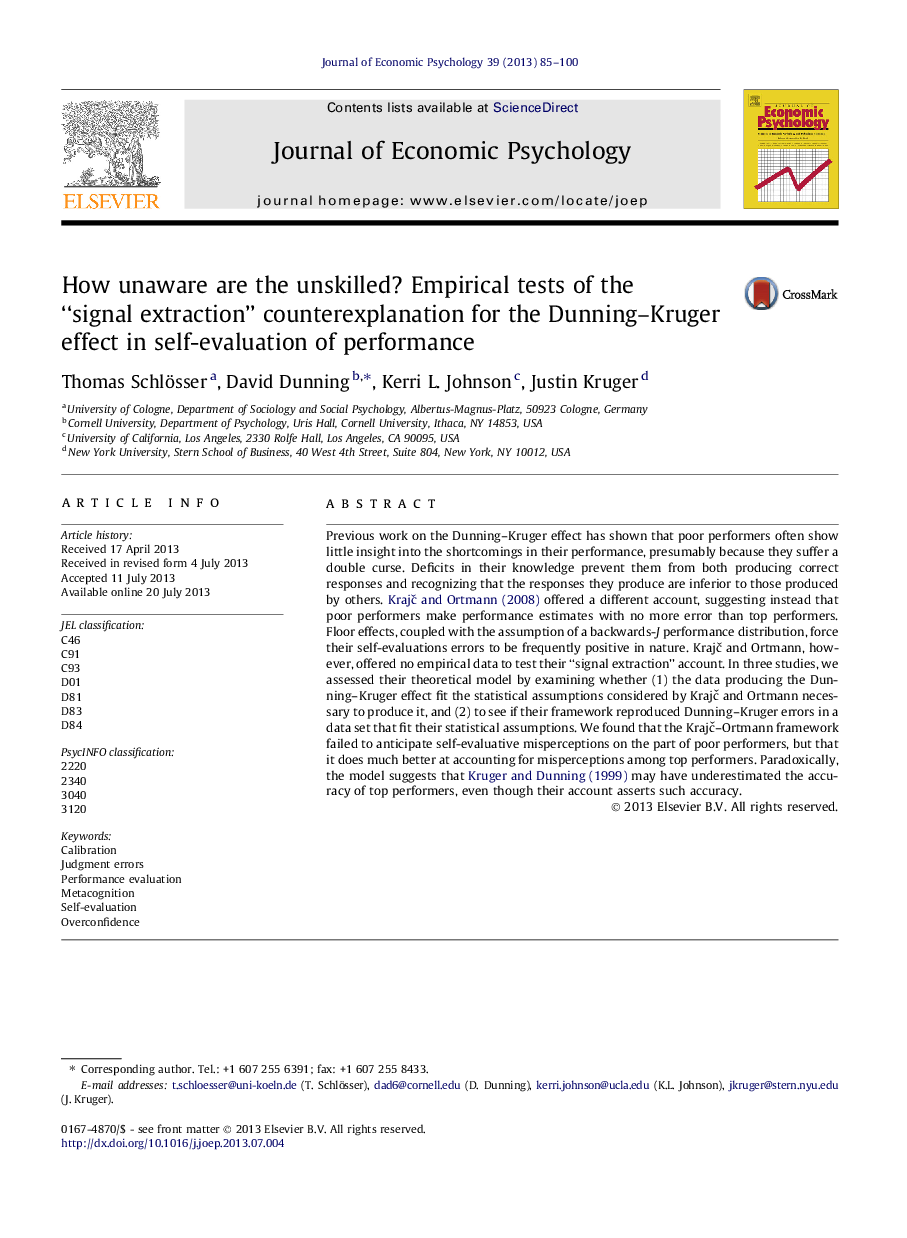| Article ID | Journal | Published Year | Pages | File Type |
|---|---|---|---|---|
| 7244919 | Journal of Economic Psychology | 2013 | 16 Pages |
Abstract
Previous work on the Dunning-Kruger effect has shown that poor performers often show little insight into the shortcomings in their performance, presumably because they suffer a double curse. Deficits in their knowledge prevent them from both producing correct responses and recognizing that the responses they produce are inferior to those produced by others. KrajÄ and Ortmann (2008) offered a different account, suggesting instead that poor performers make performance estimates with no more error than top performers. Floor effects, coupled with the assumption of a backwards-J performance distribution, force their self-evaluations errors to be frequently positive in nature. KrajÄ and Ortmann, however, offered no empirical data to test their “signal extraction” account. In three studies, we assessed their theoretical model by examining whether (1) the data producing the Dunning-Kruger effect fit the statistical assumptions considered by KrajÄ and Ortmann necessary to produce it, and (2) to see if their framework reproduced Dunning-Kruger errors in a data set that fit their statistical assumptions. We found that the KrajÄ-Ortmann framework failed to anticipate self-evaluative misperceptions on the part of poor performers, but that it does much better at accounting for misperceptions among top performers. Paradoxically, the model suggests that Kruger and Dunning (1999) may have underestimated the accuracy of top performers, even though their account asserts such accuracy.
Keywords
Related Topics
Social Sciences and Humanities
Business, Management and Accounting
Marketing
Authors
Thomas Schlösser, David Dunning, Kerri L. Johnson, Justin Kruger,
